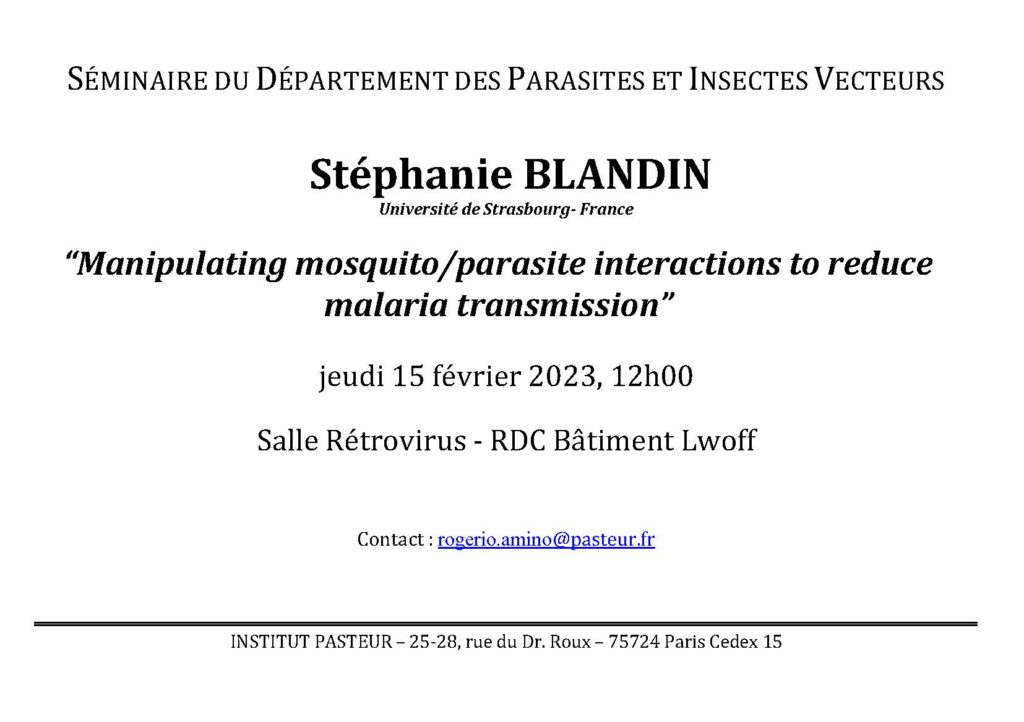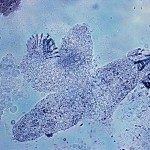Présentation

Stephanie BLANDIN leads a group working on mosquito/pathogen interactions at the Institute for Molecular and Cellular Biology (IBMC) in Strasbourg, France. Beside studying the molecular mechanisms that govern these interactions, her group also uses this information to develop novel strategies to control pathogen transmission.
She obtained a master degree in Immunology from the Institut Pasteur in Paris, and did her PhD at the European Molecular Biology Laboratory (EMBL) in Heidelberg, Germany, under the supervision of Prof. Kafatos and Prof. Hoffmann, who was later awarded the Nobel prize in Medicine in 2011. Most of her work concerns the interaction of Anopheles mosquitoes with malaria parasites. She contributed to develop some important tools for the field, but also demonstrated that mosquitoes mount potent antiparasitic responses. She identified several key pro/antiparasitic genes and genetic polymorphisms that determine the mosquito vectorial capacity, and contributed to the development of a dual gene drive strategy that reduces mosquito vectorial capacity. She also collaborates with chemists on novel antimalarial compounds with promising transmission blocking properties.
Stephanie was awarded the Young Biomedical Researcher prize from Sanofi & Institut Pasteur in 2012. Her lab is part of the Laboratory of Excellence ParaFrap.
She is also involved in promoting a responsible and ethical research (LORIER program at Inserm) and in science outreach programs.

